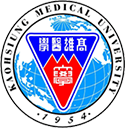Welcome to the Department of Medical Sociology and Social Work
Kaohsiung Medical University
The Department of Medical Sociology and Social Work at Kaohsiung Medical University is a leading academic unit in Taiwan dedicated to the interdisciplinary study of health, society, and social policy. Drawing from the strengths of medical sociology, social work, and public health, our department offers rigorous academic training and practice-based learning that prepare students to address the pressing social challenges of our time—especially those arising from population aging, health inequality, and social care transitions.
The department offers two academic degree tracks.
Undergraduate Program (B.A.)
Our four-year Bachelor of Arts program combines a solid foundation in social sciences with applied training in health and human services. The curriculum features interdisciplinary coursework, professional field internships, and flexible elective pathways
that allow students to specialize in areas such as aging, disability services, family welfare, and mental health.
Master’s Program (M.A.)
The two-year Master’s Program provides advanced education in medical sociology and social work with a strong emphasis on empirical research, policy analysis, and professional ethics. Students benefit from individualized faculty mentorship, field practicum placements in leading institutions, and thesis-based research grounded in real-world practice.
Interdisciplinary Programs
In addition to formal degree offerings, the department also coordinates a range of interdisciplinary programs that allow students from diverse academic backgrounds to develop secondary expertise in emerging areas of social and health care. Current offerings include:
Gerontological Health Care Program
Focused on the challenges and innovations in elder care across clinical and community settings.
Introductory Micro-Program in Aging and Care
Designed for undergraduates seeking foundational knowledge in aging, long-term care, and cross-sector collaboration.
These programs foster cross-disciplinary dialogue, enhance workforce readiness, and support the development of well-rounded professionals in both public and nonprofit sectors.
